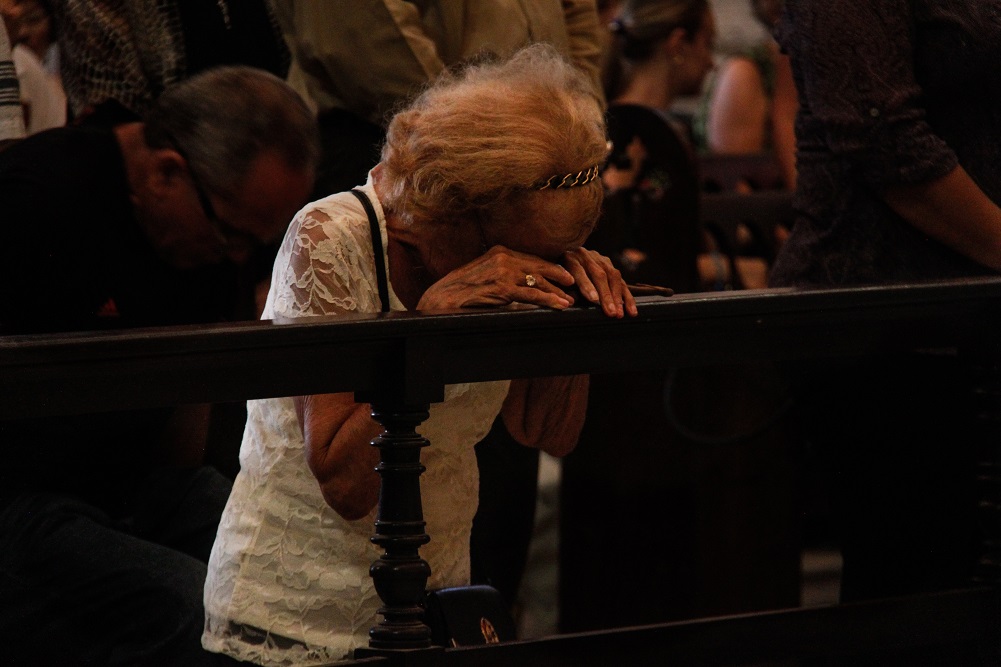Mourning Recommendations
Many Have Lost a Loved One During the Pandemic

Mexican priest Mario Arroyo Martinez shares with Exaudi’s readers his article in “Theology for Millennials” that gives recommendations on mourning, an unfortunate experience of many of the faithful during the pandemic.
***
The pandemic has hit us all, but it is true particularly of those who have lost one or even several loved ones. Such painful situations place people in a psychologically well-known condition, which is grief. From my religious pastoral perspective, I continually find myself before people who experience grief, sometimes very intensely. Here are some suggestions to cope with grief and to emerge stronger from one of life’s toughest trials.
One of the most distressing questions expressed by those who grieve is: “Why me?” a question, incidentally, which has no answer, at least not an obvious one in this life. The unknown will only be revealed in the afterlife, for now, we have to content ourselves with some rather preliminary presuppositions, which put the subject in an endless spiral that results in a loss of peace. A suggestion in face of this disturbing question is to ignore it, that is, to start from the idea that there is no answer and that it’s absurd to continue asking it. It must be rejected, pushed away, as a bad thought, because it weakens and destroys us. For people of faith, grief is often a severe test of their faith. They feel disappointed by God and think that their prayers have been in vain, that they have not been heard. It is not uncommon to find people blaming God for their misfortune. As there are no obvious culprits behind a case of COVID or cancer, the only culprit must be God, who willed it, or at least allowed it. Reactions to this conclusion can be diverse: getting angry with God, resenting Him and, in more extreme cases, denying His existence or, worse still, cursing Him.
Faced with these situations, we can only have silent respect. It is understandable that pain, a profound tearing away, leads to denial of God or even to insult Him. As similar beings, we understand that need for catharsis, for relief. We can suppose that God also understands it since He is the only one who knows the depth of hearts, and is a witness to the dimension of our pain. If we understand, God understands even more, and with more reason forgives those explainable rudenesses. In any case, after the storm of the first moment of intense pain, serenity returns, calm, there is a way of thinking about things with greater perspective and sensibility.
Faced with a difficult, painful situation, in face of grief, it makes no sense to estrange oneself from God, rather, on the contrary, it is when we need Him most to rebuild ourselves, to draw strength from our weakness. Hence, the correct attitude is just the reverse: look to God for support to overcome the trauma, the ordeal that life presents us. More than the loss of faith, what we need is a deepening of our faith. Our faith tells us that this life isn’t final; it is simply the preamble to another life, which knows no end, no pain, no frustration, no suffering. It is the time to realize that it is true, that it is so: our loved ones, if they had a good life, no longer suffer.
In this connection, the deceased are not helped by our tears, and it’s not a lack of affection to stop crying once our mourning is over. Our prayers help them, with the added good that we can establish a new form of communion with them, although different from physical communication, which we must now forego. Therefore, death is an opportunity to strengthen our faith, and to come out stronger, since we have a more complete and realistic view of our life and that of others.
Two last details. It is necessary to explain this, with simplicity, to children. We have a life here and another later, which is fuller, in Heaven. Some go ahead of us and wait for us joyfully, on the other side of the shore, towards where we are inexorably headed. And to overcome the senseless spiral of pain, it helps us to think that our relatives continue to maintain their consciousness, their “I”, in the afterlife. They continue to love what they loved. What they least want is that, because of them, our life becomes bitter or we get stuck in that sad event. Instead, they want us to live our lives, intensely and happily.
Translation by Virginia M. Forrester
 (EN)
(EN)
 (ES)
(ES)
 (IT)
(IT)





